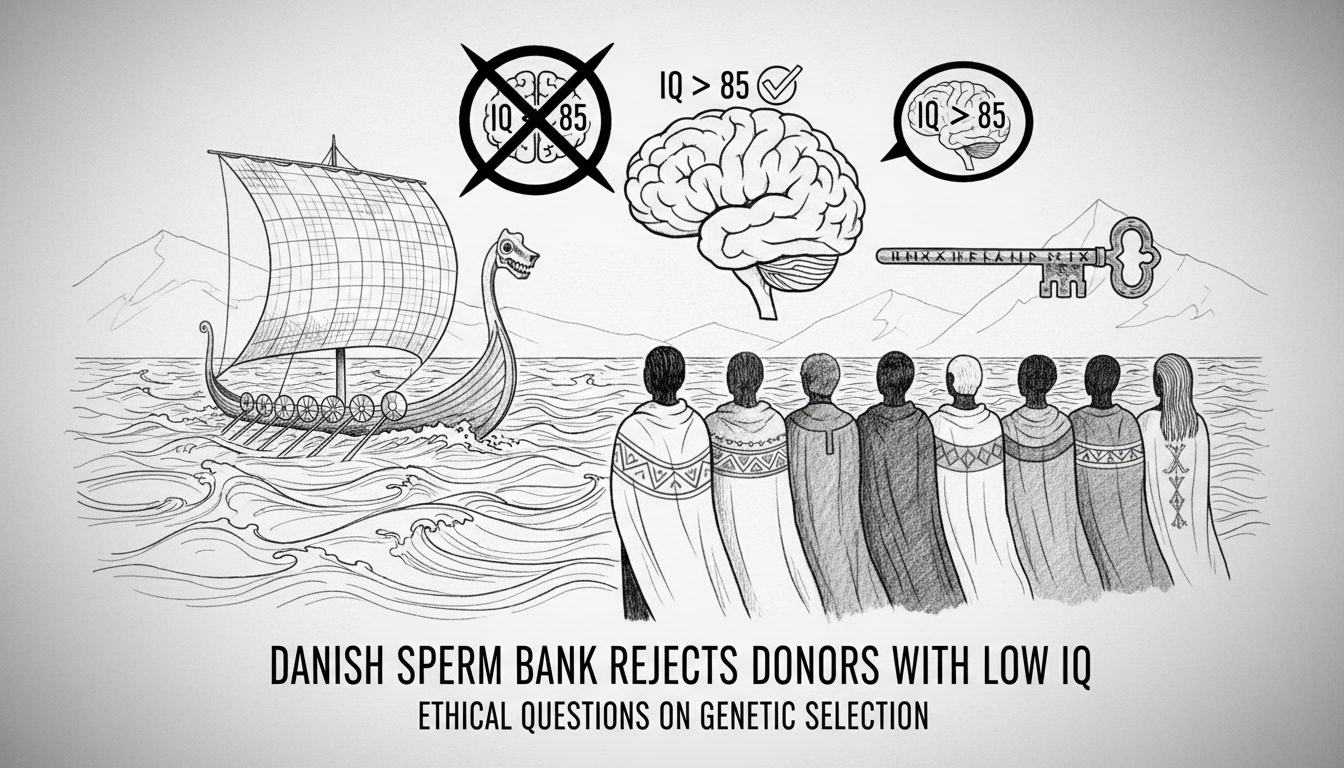A major Danish sperm bank now rejects nearly one in five potential donors due to low intelligence scores. Donor Network has implemented strict screening criteria that exclude men with IQs below 85. The facility also turns away applicants with criminal records.
The organization's director explained the policy in a recent statement. He emphasized this does not represent an elitist approach. The decision stems from ethical considerations about the quality of donations. He stated he cannot ethically sell products he cannot personally endorse.
Medical reasoning behind the policy focuses on genetic inheritance patterns. Research indicates children face higher risks of lower cognitive abilities when donors have low IQs. The bank considers this a responsible screening measure.
Intelligence quotient measurements provide context for these thresholds. Scores between 80 and 89 fall below average intelligence ranges. Normal IQ scores typically range from 90 to 109. Higher scores indicate above-average intelligence.
This policy raises important questions about genetic selection in reproduction. Denmark maintains progressive attitudes toward reproductive technologies. The country pioneered many fertility treatments now common worldwide.
Scandinavian countries often lead in ethical debates about medical technologies. Denmark's approach to sperm donation has evolved over decades. The nation maintains detailed regulations governing fertility treatments.
International readers might wonder about similar policies in their countries. Many nations screen sperm donors for health conditions. Few implement explicit intelligence thresholds. This Danish case represents an unusual approach.
The ethical implications deserve careful consideration. Should intelligence become a selection criterion for reproduction? Medical professionals debate whether this crosses ethical boundaries. Some argue it represents responsible medical practice.
Others question whether intelligence testing accurately predicts life outcomes. Environmental factors significantly influence cognitive development. Genetic predispositions don't determine destiny.
Danish fertility clinics operate under national health guidelines. The country provides substantial public funding for reproductive services. This creates different dynamics than fully private systems.
What does this mean for prospective parents using donor services? They can expect more detailed donor information. They might face complex decisions about genetic selection criteria. The policy adds another layer to already difficult reproductive choices.
The sperm bank's approach reflects broader societal values. Scandinavian countries prioritize social welfare and equal opportunity. Yet this policy introduces selective criteria that some might find contradictory.
As reproductive technologies advance, such ethical questions will multiply. Denmark's current stance offers one perspective on these challenges. Other countries will likely develop different approaches based on their cultural contexts.

